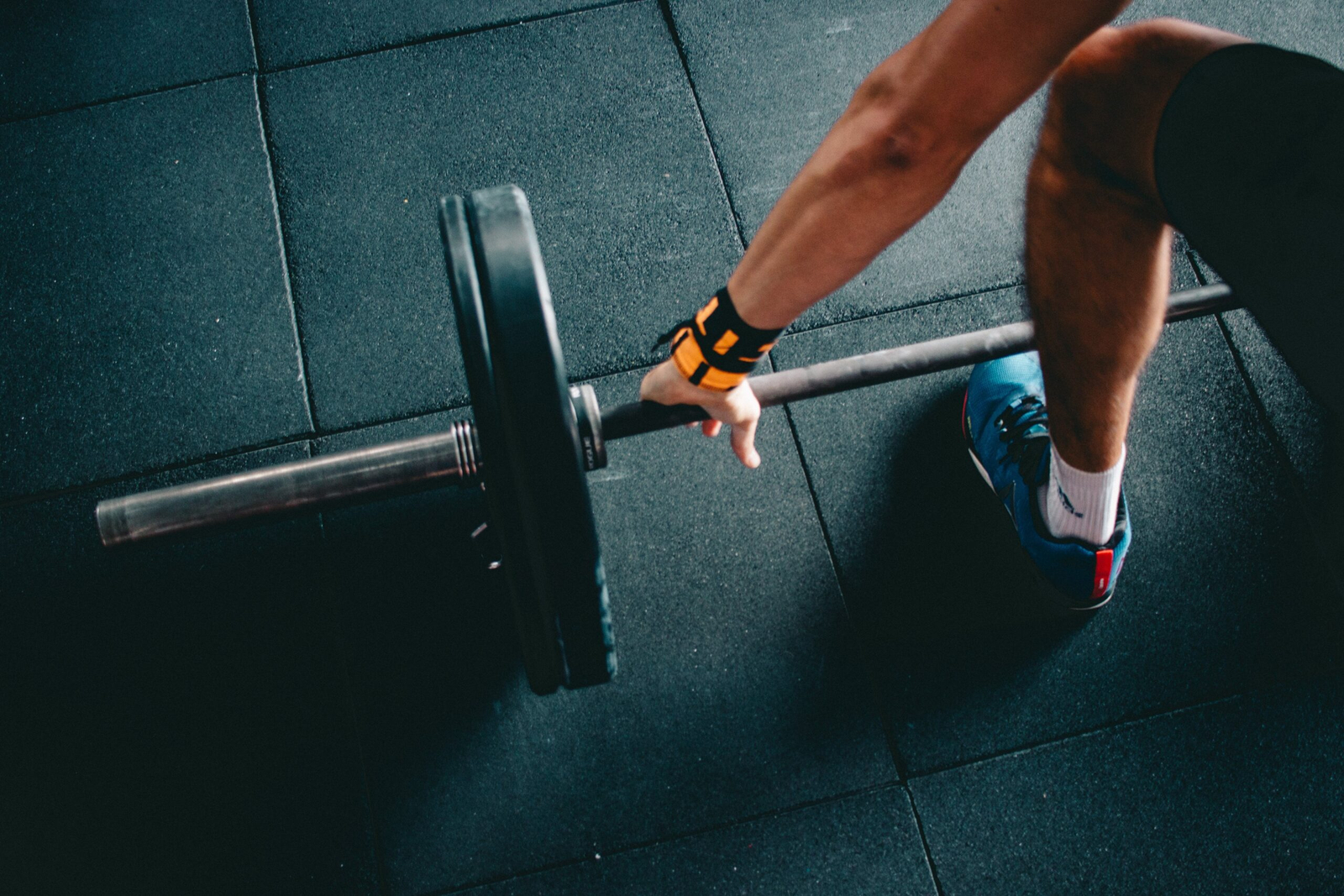The Ultimate Guide: How to Build Lean Muscle
Muscle building! It’s not just a topic for professional bodybuilders or fitness enthusiasts. In fact, it’s a healthful pursuit for anyone at any age. Even for the average Joe or Jane, building lean muscle serves as a foundational pillar for peak physical fitness. Ready to sculpt a better body? Armed with a wealth of expert insights, in-depth tips and practical advice, “The Ultimate Guide: How to Build Lean Muscle” is about to become your go-to resource. From detailed exercise regimens to optimal dietary practices, we’ve got all bases covered. Prepare yourself; your exciting muscle-building journey awaits.
Understanding Lean Muscle
Muscle building is a crucial aspect of fitness and wellness. Whether you are an amateur or a pro, understanding what lean muscle is and how to develop it can transform your exercise regime and lifelong health. So let’s dive right in.
What is Lean Muscle
Lean muscle, in the simplest of terms, is muscle that’s devoid of a high percentage of fat. Imagine it as the pure muscle that’s underneath the outer layer of body fat. It’s what gives you strength, a toned appearance, and contributes to a higher metabolism, meaning you burn more calories even when you’re not working out.
Difference between Lean Muscle and Bulk Muscle
Understanding the difference between lean muscle and bulk is also significant in your fitness journey. When we talk about lean muscle, we allude to a physique that is tight, strong, and defined. On the other hand, bulk muscle refers to a larger, heavier muscle mass which may not necessarily be as defined. Aesthetic differences aside, building lean muscle boosts your metabolism and makes you stronger, whereas bulk muscle might give you more lifting power but could come with extra body fat.
Importance of Building Lean Muscle
The benefits of having lean muscle are immense. Besides the aesthetic appeal, it improves your posture, protects your joints from injury, improves insulin sensitivity and, increases bone density, cardiovascular fitness and can stave off illness and speed up your recovery time. Additionally, it keeps your metabolism fired-up, meaning you burn more calories, helping in maintaining a healthy weight.
Navigate Your Nutritional Needs
Like any challenging task, you need the right tools to build lean muscle. In this case, those tools are the right nutrients that fuel your body for workouts, muscle growth and recovery.
Understanding Macronutrients for Muscle Growth
Macronutrients are carbs, proteins, and fats – the primary components of every diet. To build lean muscle, the balance of these macros in your diet plays a critical role. You need an optimal ratio of each, designed specifically in line with your fitness objectives.
Importance of Protein
Protein is the building block of muscles, and supplementing your diet with enough protein is crucial when you’re trying to pack on lean muscle. It helps not only in building new muscle fibers but also repairing the ones damaged during workouts.
Sufficient Carbohydrate Intake
Carbohydrates are your main energy source. Carbs provide the energy required for intense exercise and help replenish glycogen stores post-workout. So to avoid muscle breakdown and facilitate recovery, a balanced carb intake is vital.
Role of Healthy Fats
Healthy fats are essential for maintaining vital body functions. They assist in absorbing vitamins, producing hormones, and improving nerve function. In addition, fats serve as another energy source, helping you power through those grueling workouts.
Hydration and Muscle Growth
Water makes up a large percentage of our muscle composition and plays an underappreciated role in muscle development. Being properly hydrated optimizes physical performance, aids in digestion and nutrient absorption, and aids in muscle recovery.

Training for Lean Muscle
To build lean muscle, you need to align your workout regime accordingly. Here, we’ll look at how to finetune your exercise for lean muscle growth.
Strength Training vs Cardio for Muscle Growth
While cardio is great for improving cardiovascular health and burning calories, it’s the strength training that primarily helps build lean muscle. Incorporating a solid strength training routine coupled with cardio will stand you in good stead to generate lean muscle mass.
Optimizing Weight Training for Lean Muscle
When it comes to weight training, the trick is to strike a balance between the weight lifted and repetitions performed. For lean muscle gain, aim for a weight with which you can do 8-12 repetitions, pushing your muscles to the point of fatigue.
Importance of Compound Exercises
Compound exercises engage multiple muscle groups at once, fostering better-calorie-burn and higher muscle recruitment – vital for lean muscle development. Squats, deadlifts, bench presses, and pull-ups are popular compound exercises, delivering the bang for your workout buck.
Role of Intensity Over Volume
Unlike muscle bulking, lean muscle growth prioritizes intensity over sheer volume of exercise. Shorter, high-intensity workouts are more effective in burning fat and shaping lean muscles.
Creating a Workout Plan
Having an organised workout plan instrumentalizes your journey towards developing lean muscle. Let’s explore what it entails.
Identifying Your Fitness Goals
Before you set a workout plan, you need to identify your fitness goals clearly. Decide whether you want muscle growth, fat loss, strength increment, or improve overall fitness. The more specific you are, the better your plan will be.
Planning Your Weekly Workout Schedule
You should have a balanced workout schedule to hit all muscle groups optimally each week. A mix of strength training days focusing on different muscle groups with some high-intensity interval training (HIIT) and rest days is a good starting point.
Tracking Your Progress
Track your growth and adjust your plan as necessary. The workout that fueled the first few weeks of muscle growth won’t necessarily drive results forever. Keep challenging your body.

Supplementation for Lean Muscle
Diet alone may not provide you with all the nutrients needed for optimal muscle growth. Supplements can fill in those nutritional gaps.
Role of Supplements in Muscle Growth
Supplements are meant to supplement (not replace) a balanced diet. They help you reach your daily requirement of essential nutrients, aiding in better performance, muscle growth, and faster recovery.
Relevance of Creatine
Creatine boosts your strength and endurance, allowing you to work out harder and longer. As a result, it’s one of the most familiar supplements in the fitness world.
The Benefits of Whey Protein
Whey protein is hailed for its excellent amino acid profile and rapid absorption rate, making it perfect for post-workout muscle recovery and growth.
The Use of BCAA for Recovery
BCAAs (branched-chain amino acids) are essential amino acids that act as building blocks for muscle repair and growth. They aid in reducing muscle soreness, fatigue and improve workout intensity.
The Role of Rest and Recovery
Rest and recovery are just as important as your workout. Here are some things to remember.
Understanding the Role of Sleep in Muscle Recovery
During sleep, your body repairs and builds the muscles worked out during the day. Lack of quality sleep can hinder muscle growth and lead to muscle fatigue and poor workout performance.
Importance of Active Recovery Days
Active recovery days help you shake off muscle stiffness and promote muscle and mind recovery. Indulging in lighter activities like cycling, walking or yoga can keep you active without straining your muscles.
Incorporating Stretching and Flexibility Training
Stretching aids in maintaining flexibility, which can help your exercise performance in the long run. It also enhances actual muscle growth by encouraging more blood flow to your muscles.

Avoiding Common Mistakes
You can easily undermine your progress by making some common mistakes. Here’s how to avoid them.
Overtraining and Its Effects on Muscle Growth
Overtraining can lead to injury, hinder muscle growth, and leave you feeling drained. Always listen to your body and give it ample rest.
The Importance of Not Skipping Meals
Skipping meals, especially post-workout meals, can interfere with muscle recovery and subsequent growth. Ensure you’re fueling your body with the right nutrients after every workout.
Avoiding Steroids and Unhealthy Supplements
While it may be enticing to turn to unhealthy shortcuts like steroids, remember that they can cause long-lasting negative effects on your body. Always pick natural, tested supplements and follow the recommended dosage.
FAQs: Building Lean Muscle
Building lean muscle can seem daunting, and you may have a few questions. Here are some FAQs to shed light on your concerns.
How Long Does It Take to Build Lean Muscle?
Muscle building is a process that requires patience and determination. The timeline for visible lean muscle growth varies for everyone, depending on factors like diet, workout intensity, genetics, and age.
Can Lean Muscle Be Built Without Supplements?
Yes, it can! While supplements can aid your muscle-building journey, they are not a requirement. An appropriate diet and regular exercise are the key factors that contribute to the development of lean muscle.
What’s the Difference Between Losing Weight and Building Lean Muscle?
Losing weight primarily involves shedding excess body fat, while building lean muscle focuses on developing and toning muscle mass. Sometimes, building lean muscle can lead to weight gain due to increased muscle mass.
Can I Build Muscle by Only Doing Cardio?
While cardio is beneficial for heart health and burning calories, it isn’t the most effective way to build muscle. Incorporating strength training is essential for anyone looking to increase muscle mass.

Tips for Sustaining Lean Muscle
Keeping your newly built lean muscles is as vital as building them. Here are a few tips for maintaining your gains.
Maintaining a Balanced Diet
A balanced diet rich in proteins, healthy fats, and carbs can nourish your muscles, giving them the strength to function and grow.
Persistency in Your Workouts
Consistency in your exercise routine will give you sustained results. Try incorporating different exercises to keep your workouts challenging and exciting.
Regular Health Check-up and Muscle Assessments
Regular health check-ups and muscle evaluations can help you identify the areas you need to work on and help you tailor your workout plan more effectively.
Conclusion
The journey of building and sustaining lean muscle is much more complex than merely lifting weights. It requires a deep understanding of your body’s needs, adherence to a balanced diet, consistency in workouts, and most importantly, patience. Prioritizing progress over perfection, listening to your body, and savoring your journey can make the process more fulfilling. So here’s to the journey of fitness, resilience, and continual growth. Let’s embrace it with open arms.



Pingback: The Definitive Guide on How to Build Lean Muscle for Women – Lose Weight With Absolute Minimal Diet – Your All In One Guide to Weight Loss & Nutrition
Pingback: Understanding how to build muscle density: A comprehensive guide – Lose Weight With Absolute Minimal Diet – Your All In One Guide to Weight Loss & Nutrition